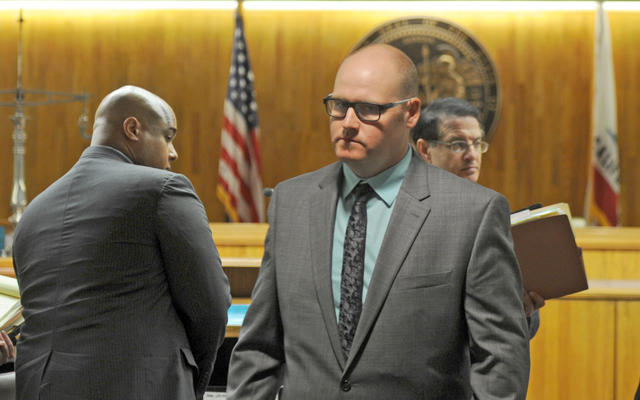Twice-Fired Custody Deputy Alleges Whistleblower Retaliation
Former Santa Barbara County Jail Guard Wins Procedural Victory in Court

Robert Kirsch, a twice-fired custody deputy in the Santa Barbara County Jail, is fighting to get his job back, claiming he’s being retaliated against as a “whistleblower.” Kirsch won a partial procedural victory in front of Judge Colleen Sterne, who ruled that Kirsch and two other custodial deputies could be granted access to the personnel records of three of the five deputies Kirsch alleged had been allowed to “engage in chicanery and get away with it.”
Kirsch was terminated in December 2020 for allegedly submitting fraudulent time cards. The two other deputies — Joshua Lake and Robert Garnica — were disciplined but kept their jobs.
All three have claimed their time cards became an issue only after they had filed a sexual discrimination complaint against a lieutenant for not allowing female custody officers to work in a new arraignment module of the County Jail. They also alleged another deputy had tampered with drug-related evidence, another lieutenant of time-card fraud, and another lieutenant still of being drunk in public and hiding exculpatory evidence.
Judge Sterne ruled the trio could examine some of the personnel records sought, but not all. Some of the alleged misdeeds, the judge ruled, had no bearing or relevance on the case at hand or involved allegations the plaintiffs never blew the whistle on. Given the strict protections afforded the personnel files of law enforcement officers under state law, the review of these documents will take place only in the judge’s chambers; no members of the media or public will be allowed.
Sign up for Indy Today to receive fresh news from Independent.com, in your inbox, every morning.
In the context of Black Lives Matter, the long and convoluted case of Robert Kirsch demonstrates that firing a law enforcement officer with a troubling record is far easier said than done. Kirsch — first hired by the Sheriff’s Office in 2004 — was indicted by a federal grand jury in 2014 for his role in beating African-American inmate Charles Owens, who was in County Jail awaiting trial on rape and murder charges.
After Owens reportedly lipped off to Custody Deputy Christopher Johnson, Johnson retaliated by spinning around Owens — then cuffed — and throwing him to the ground face-first. Kirsch then deployed two series of knee-drops—separated by seven seconds — on Owens’s back. In his report, Deputy Johnson failed to mention any of Kirsch’s knee drops even though a jail video camera — located 40-feet away — captured the whole event.
Kirsch would be tried two times for his role in this attack; the first trial ended with a hung jury, and in the second, he was acquitted. (Johnson was found guilty of obstruction of justice and sentenced to three years’ probation. In 2017, however, his conviction was reversed by the Ninth Circuit Court of Appeals and dismissed. In 2018, he was rehired by the Sheriff’s Office and given his job back, where he remains still.)
Kirsch would appeal his termination to the county’s Civil Service Commission, which in 2016 ruled in his favor. The commission found that the second series of knee drops was not necessary as Owens — who was subsequently found guilty and sentenced to life in prison — was face-down on the ground, cuffed, and not resisting, but that the first series of knee drops was justified because Owens had resisted Johnson’s initial orders.
Sheriff Bill Brown strenuously disagreed with the commission’s ruling.
That same year, Owens sued the county for excessive force, and the county settled out of court for $60,000.
CORRECTION: This story was updated 9/28/21 to note that Christopher Johnson’s conviction was later reversed and that he has since been rehired by the Sheriff’s Office.
Support the Santa Barbara Independent through a long-term or a single contribution.



